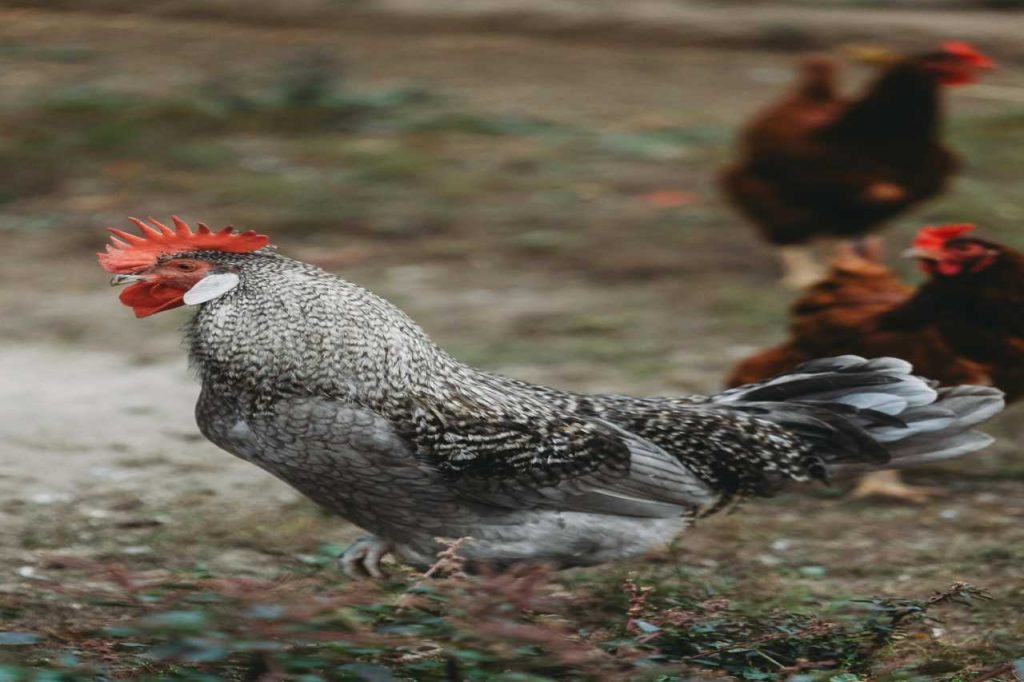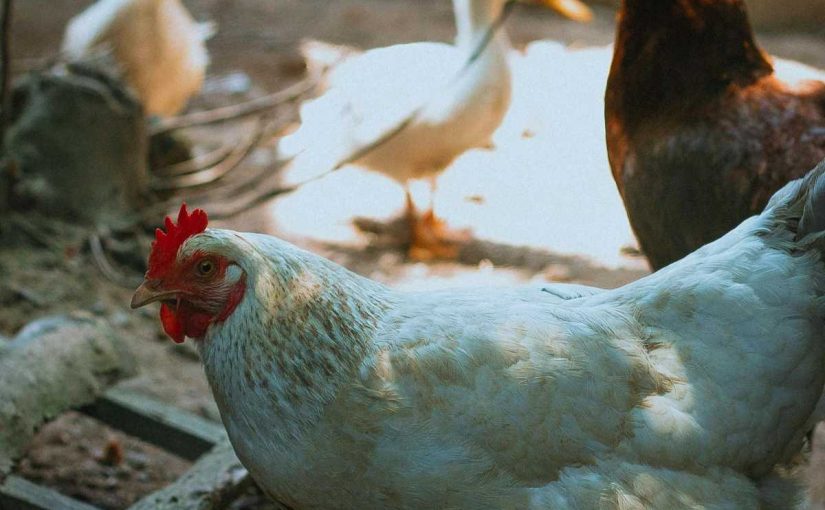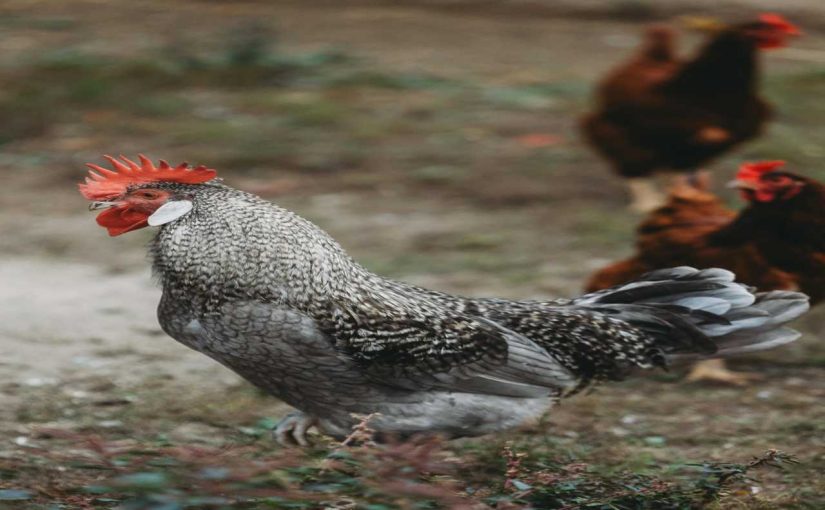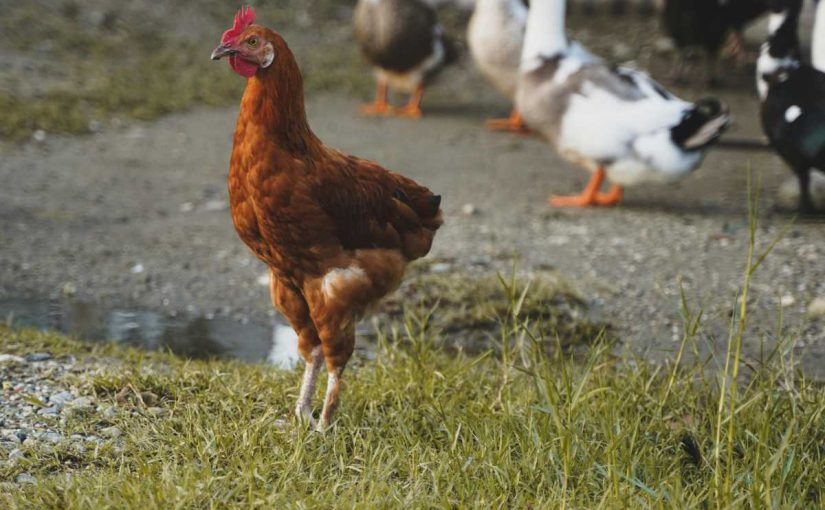Many people choose to raise chickens primarily for their eggs. Whether for personal consumption or selling, the size and quality of the eggs are crucial. While all chickens lay eggs, not all eggs are equal in size or quality. Some chicken breeds are particularly renowned for laying larger eggs, which many prefer for their size and nutritional value. If you’re considering raising chickens for bigger eggs, this blog will guide you through the best breeds for producing big, healthy eggs. We’ll also explore the factors influencing egg size and provide tips on raising these chickens effectively.
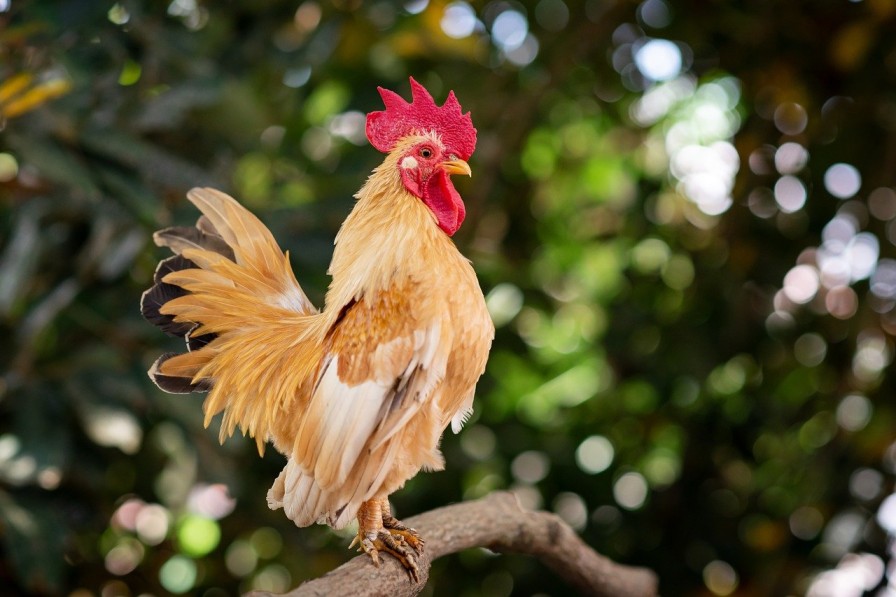
Why Choose Large Egg-Laying Breeds?
Before we delve into the breeds known for laying large eggs, let’s examine why larger eggs are often preferred:
- More Nutrients: Larger eggs typically contain more protein, vitamins, and minerals due to their larger yolk and egg white.
- Versatility in Cooking: Many cooking and baking recipes favor larger eggs for their rich flavor and texture, making them ideal for dishes like scrambled eggs and omelets.
- Commercial Value: For those looking to sell eggs, larger sizes are generally in higher demand and can command premium prices.
Now, let’s take a closer look at the chicken breeds that stand out for their large egg production.
1. Jersey Giant: The Gentle Giant with Large Eggs
The Jersey Giant is one of the largest chicken breeds globally and is well-known for producing large eggs. Despite their impressive size, typically weighing between 8 to 10 kg, they are gentle and friendly, making them a great addition to backyard flocks.
- Egg Size: Extra-large
- Egg Color: Brown
- Egg Production: 150–200 eggs per year
While Jersey Giants may not lay as many eggs as some other breeds, their extra-large brown eggs are highly sought after. They usually start laying around 6 months of age and maintain good production for several years.
Pros:
- Produces extra-large eggs
- Calm and friendly temperament
- Hardy in colder weather
Cons:
- Slower maturity, taking longer to start laying
- Requires more food due to their size
2. Leghorn: Efficient Layers of Large White Eggs
Leghorns are among the most productive egg-laying breeds, known for their large white eggs. Although smaller than Jersey Giants, their egg-laying efficiency makes them a staple in commercial egg production.
- Egg Size: Large to extra-large
- Egg Color: White
- Egg Production: 250–320 eggs per year
Leghorns are prolific layers that produce a significant number of large eggs. Their lightweight build also means they consume less feed, making them cost-effective for egg production.
Pros:
- High egg production rate
- Large, white eggs suitable for personal and commercial use
- Economical with lower feed consumption
Cons:
- Can be skittish and less friendly
- Requires ample space to roam
3. Rhode Island Red: The All-Rounder for Large Brown Eggs
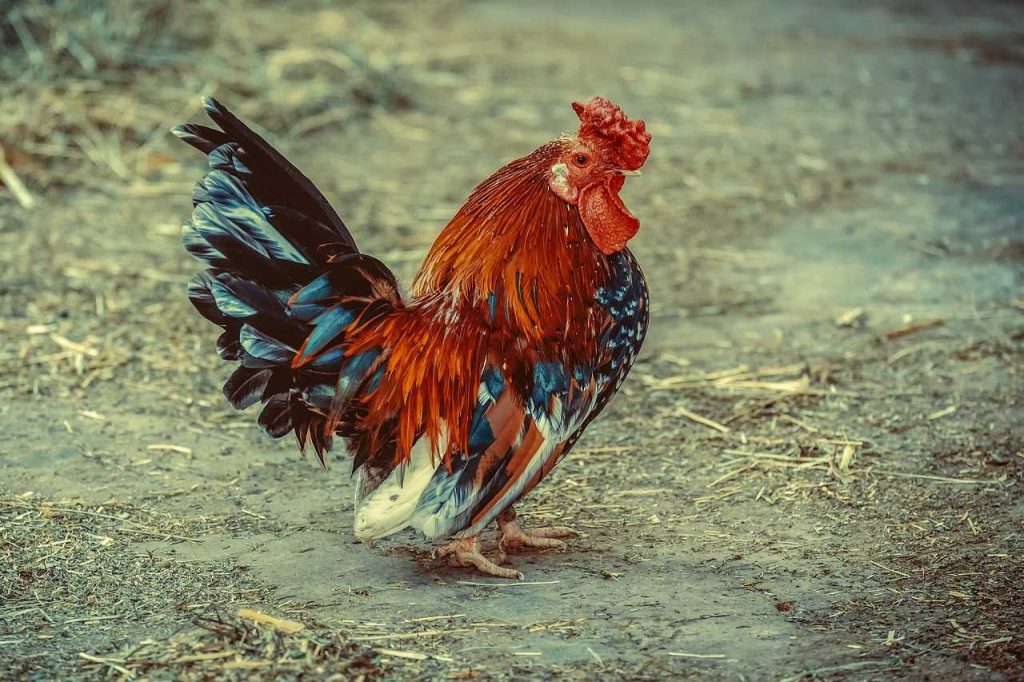
Rhode Island Reds are well-regarded for their dual-purpose capabilities, being raised for both meat and eggs. They are reliable layers of large brown eggs and are popular among backyard chicken keepers due to their hardiness.
- Egg Size: Large
- Egg Color: Brown
- Egg Production: 250–300 eggs per year
Known for their adaptability, Rhode Island Reds can lay well in various conditions, making them ideal for both beginners and experienced keepers.
Pros:
- Consistent production of large brown eggs
- Hardy and adaptable to different climates
- Friendly and easy to manage
Cons:
- Can be aggressive towards other chickens
- Requires adequate space and nutrition for optimal egg production
4. Sussex: The Reliable Large Egg Layer
The Sussex breed is another excellent option for those seeking large eggs. With their calm and curious nature, Sussex chickens are easy to manage and produce large eggs, making them great for families or small farms.
- Egg Size: Large
- Egg Color: Cream to light brown
- Egg Production: 240–260 eggs per year
These dual-purpose birds are known for being great foragers, allowing them to supplement their diet by finding food outdoors.
Pros:
- Large, creamy eggs
- Friendly and docile, suitable for families
- Excellent foragers
Cons:
- Egg production may decrease in colder months
- Needs space to roam for optimal health and egg-laying
5. Orpington: The Queen of Large Brown Eggs
Orpingtons are beloved among backyard chicken keepers for their gentle nature and solid egg production. These fluffy, friendly birds are known for their large egg output, perfect for those who prefer brown eggs.
- Egg Size: Large to extra-large
- Egg Color: Brown
- Egg Production: 180–220 eggs per year
Particularly, Buff Orpingtons are notable for their consistent laying, even in winter months.
Pros:
- Lays large brown eggs
- Great temperament, ideal for families
- Good winter layers
Cons:
- Requires more food due to their size
- Lower egg production compared to some other breeds
6. Barred Plymouth Rock: Consistent Layers of Large Brown Eggs
Barred Plymouth Rocks are a classic American breed known for their steady egg production and ability to lay large brown eggs. These birds are friendly and make great pets as well as productive layers.
- Egg Size: Large
- Egg Color: Brown
- Egg Production: 200–280 eggs per year
Ideal for beginners, Barred Plymouth Rocks are hardy and enjoy foraging, making them a cost-effective choice for raising chickens.
Pros:
- Large brown eggs
- Friendly and easy to handle
- Adapts well to various climates
Cons:
- Not as prolific as some other breeds
- Can become broody, slowing egg production
7. Australorp: The Australian Champion of Large Eggs
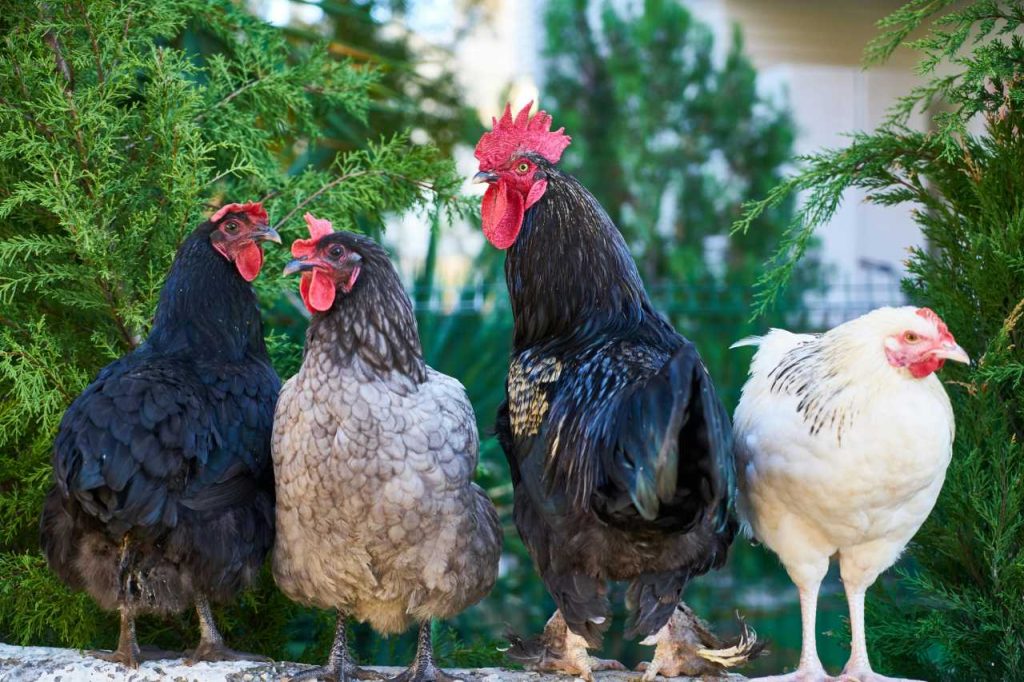
Australorps are renowned for holding the world record for egg production—364 eggs in a single year! They are consistent layers of large brown eggs and are known for their friendly and calm demeanor.
- Egg Size: Large
- Egg Color: Brown
- Egg Production: 250–300 eggs per year
These birds are very adaptable, making them a favorite among backyard chicken keepers who want a steady supply of large eggs.
Pros:
- High production rate with large eggs
- Easygoing and friendly, suitable for beginners
- Adapts well to different environments
Cons:
- May become broody, which can affect egg production
- Requires a balanced diet for optimal productivity
Factors That Affect Egg Size
While the breed is essential in determining egg size, several other factors also play a role:
- Age of the Chicken: Older hens generally lay larger eggs than younger ones. Pullets (young hens) may start with smaller eggs, but their size increases as they mature.
- Nutrition: A well-balanced diet rich in protein, calcium, and other nutrients is crucial for producing large eggs. Inadequate nutrition can lead to thinner shells and smaller egg sizes.
- Environment: The space available for chickens can influence egg size. Hens with ample room to roam and forage tend to lay healthier, larger eggs.
- Health: The overall health of a chicken is vital for egg production. Stress, disease, or parasites can negatively impact egg size. Regular health checks, deworming, and vaccinations are essential for maintaining healthy chickens.
Tips for Raising Large Egg-Laying Breeds
If you’re committed to raising chickens that lay large eggs, here are some tips to help you succeed:
- Provide a Balanced Diet: Ensure your chickens receive a well-rounded diet that includes sufficient calcium, protein, and vitamins. Layer feed and oyster shell supplements can enhance egg size.
- Give Plenty of Space: Chickens need room to move around and exercise. Access to outdoor space for foraging and scratching the ground is essential.
- Maintain Proper Health Care: Regularly check your chickens for signs of illness or parasites. Healthy chickens are more likely to lay larger, healthier eggs.
- Monitor Egg-Laying Patterns: If you notice a decline in egg size or production, it may be time to reevaluate their diet, environment, or health.
Conclusion
Choosing the right breed is crucial when raising chickens for large eggs. Whether you prefer the extra-large brown eggs of a Jersey Giant or the high output of large white eggs from a Leghorn, there are numerous options available. With proper care, a balanced diet, and a suitable environment, your chickens will reward you with a consistent supply of big, beautiful eggs.
By selecting the best breeds for large egg production, you enhance your chances of filling your egg basket while enjoying a fulfilling chicken-keeping experience. Whether you’re raising chickens in your backyard or on a small farm, these breeds will help you achieve optimal egg size and quality. Happy chicken raising!

